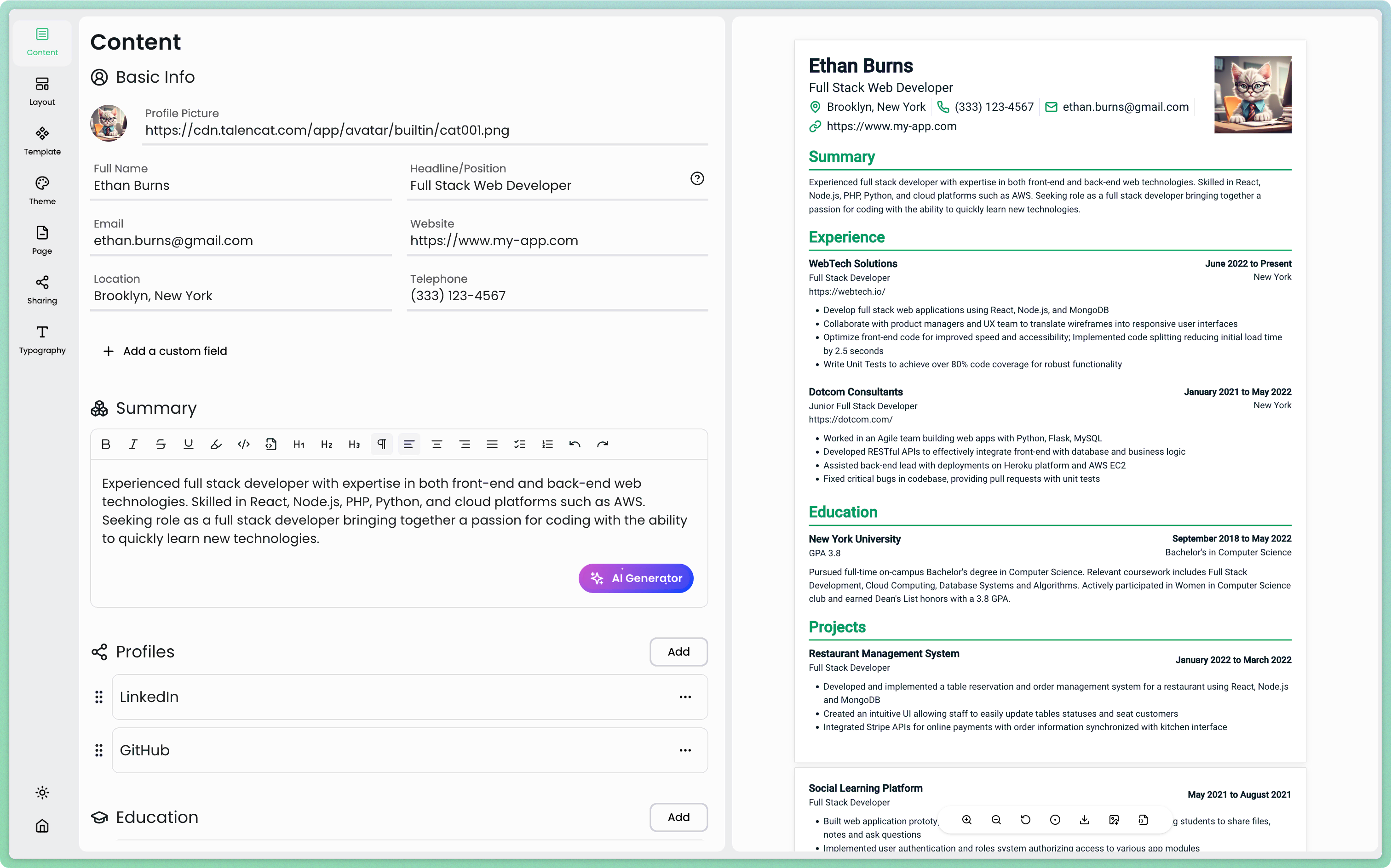Are you ready to take your career to the next level as an Amazon Business Analyst? The journey to landing this coveted role begins with acing the interview process. In this comprehensive guide, we'll walk you through everything you need to know to prepare for your Amazon Business Analyst interview, from understanding the interview structure to mastering common questions and honing your analytical skills. Whether you're a seasoned professional or a fresh graduate, this article will equip you with the knowledge and confidence to shine in your interview and potentially secure a position at one of the world's most innovative companies.
Introduction
Overview of Amazon Business Analyst Role
Amazon, a global e-commerce and technology giant, relies heavily on data-driven decision-making to maintain its competitive edge. Business Analysts play a crucial role in this process, serving as the bridge between raw data and actionable insights. As an Amazon Business Analyst, you'll be expected to analyze complex datasets, identify trends, and provide recommendations that drive business growth and operational efficiency.
The role typically involves:
- Conducting in-depth market research and competitor analysis
- Developing and maintaining key performance indicators (KPIs)
- Creating data visualizations and reports for stakeholders
- Collaborating with cross-functional teams to implement data-driven strategies
- Identifying opportunities for process improvement and cost reduction
Importance of Interview Preparation
Securing a position as an Amazon Business Analyst is highly competitive, and the interview process is designed to be rigorous and comprehensive. Thorough preparation is not just beneficial—it's essential. By understanding the interview structure, familiarizing yourself with common questions, and honing your analytical skills, you'll be better positioned to showcase your abilities and stand out from other candidates.
Effective preparation can help you:
- Demonstrate your knowledge of Amazon's business model and culture
- Articulate your analytical skills and problem-solving abilities
- Showcase your understanding of key business metrics and data analysis techniques
- Present yourself as a confident and capable candidate who aligns with Amazon's values
Amazon Business Analyst Interview Process
General Structure of the Interview
The Amazon Business Analyst interview process typically consists of multiple rounds, each designed to assess different aspects of your skills, experience, and cultural fit. While the exact structure may vary depending on the specific role and team, you can generally expect the following stages:
- Initial phone screening with a recruiter
- One or more phone or video interviews with team members or hiring managers
- On-site interviews (or virtual equivalent) consisting of multiple rounds with various team members and stakeholders
Types of Interviews Conducted
Behavioral Interviews
Behavioral interviews are a crucial component of Amazon's hiring process. These interviews aim to assess your past experiences and how you've handled specific situations. The questions are typically structured around Amazon's Leadership Principles, which are fundamental to the company's culture and decision-making processes.
Technical Interviews
Technical interviews for a Business Analyst role at Amazon focus on your analytical skills, data manipulation abilities, and problem-solving approach. You may be asked to demonstrate your proficiency in SQL, data analysis tools, and your ability to interpret complex datasets.
Case Studies
Case study interviews present you with real-world business scenarios and ask you to analyze the situation, identify key issues, and propose solutions. These interviews assess your ability to think critically, apply analytical frameworks, and communicate your thoughts clearly and concisely.
Key Topics to Study for the Interview
Amazon's Leadership Principles
Amazon's 16 Leadership Principles are the cornerstone of the company's culture and decision-making process. Familiarizing yourself with these principles and being able to provide concrete examples of how you've embodied them in your past experiences is crucial for success in the interview process.
Some key principles to focus on:
- Customer Obsession
- Ownership
- Invent and Simplify
- Are Right, A Lot
- Learn and Be Curious
- Dive Deep
- Deliver Results
Analytical Skills and Techniques
SQL and Data Analysis
Proficiency in SQL is often a requirement for Business Analyst roles at Amazon. Be prepared to demonstrate your ability to write complex queries, join tables, and perform data manipulations. Additionally, familiarity with data analysis tools such as Excel, Python, or R can be beneficial.
Business Case Analysis
Understanding how to approach and analyze business cases is crucial. This includes:
- Identifying key issues and objectives
- Gathering and analyzing relevant data
- Developing and evaluating potential solutions
- Making recommendations based on your analysis

Common Amazon Business Analyst Interview Questions
Behavioral Questions
Behavioral questions are designed to assess how you've handled situations in the past, which can indicate how you might perform in the future. These questions often start with phrases like "Tell me about a time when…" or "Give me an example of…"
Examples of Behavioral Questions
Sample Question 1: "Tell me about a time when you had to work with incomplete data to make a decision."
Expert Answer: "In my previous role as a Business Analyst at XYZ Corp, we were tasked with optimizing our supply chain process. We had limited historical data due to recent system changes. To address this, I:
- Identified the critical data points needed for the analysis.
- Collaborated with the IT team to retrieve available data from legacy systems.
- Conducted interviews with key stakeholders to fill in gaps and validate assumptions.
- Used statistical modeling to estimate missing data points.
- Clearly communicated the limitations and assumptions in my final report.
Despite the challenges, we were able to identify several areas for improvement, resulting in a 15% reduction in supply chain costs over the next year. This experience taught me the importance of resourcefulness and clear communication when working with imperfect information."
Sample Question 2: "Describe a situation where you had to influence a team to adopt a new approach or idea."
Expert Answer: "At my previous company, I identified an opportunity to improve our customer segmentation strategy using machine learning techniques. However, the marketing team was hesitant to change their traditional approach. To influence the team:
- I prepared a detailed presentation showcasing the potential benefits, including improved targeting accuracy and increased ROI.
- I ran a small pilot project to demonstrate the effectiveness of the new approach.
- I addressed concerns by organizing workshops to familiarize the team with the new tools and methodologies.
- I collaborated closely with key team members to ensure the new approach met their specific needs.
As a result, the team gradually adopted the new segmentation strategy, leading to a 25% increase in campaign effectiveness within six months. This experience reinforced the importance of data-driven persuasion and stakeholder engagement when introducing new ideas."
Technical Questions
Technical questions assess your analytical skills and your ability to work with data. These may include SQL queries, data interpretation, or problem-solving scenarios.
SQL and Data-related Questions
Sample Question: "Write a SQL query to find the top 5 customers by total purchase amount in the last quarter."
Expert Answer: Here's a SQL query that would accomplish this task:
SELECT c.customer_id, c.customer_name, SUM(o.total_amount) as total_purchases
FROM customers c
JOIN orders o ON c.customer_id = o.customer_id
WHERE o.order_date >= DATE_SUB(CURDATE(), INTERVAL 3 MONTH)
GROUP BY c.customer_id, c.customer_name
ORDER BY total_purchases DESC
LIMIT 5;
This query:
- Joins the customers and orders tables.
- Filters for orders in the last quarter using DATE_SUB().
- Groups the results by customer.
- Sums the total purchase amounts.
- Orders the results by total purchases in descending order.
- Limits the output to the top 5 customers.
Analytical Problem-Solving Questions
Sample Question: "We've noticed a 20% drop in customer engagement with our mobile app over the past month. How would you approach investigating this issue?"
Expert Answer: To investigate this issue, I would follow these steps:
- Define metrics: Clarify what constitutes "customer engagement" (e.g., daily active users, session length, feature usage).
- Data collection: Gather relevant data, including:
- User demographics
- Device types and OS versions
- App version history
- User feedback and reviews
- Error logs and crash reports
- Trend analysis: Look for patterns in the engagement drop:
- Is it affecting all user segments equally?
- Did it coincide with any app updates or external events?
- Comparative analysis: Compare with:
- Previous periods
- Competitor performance
- Web platform engagement (if applicable)
- User journey mapping: Analyze where in the user journey the drop-off is occurring.
- Technical investigation: Check for any technical issues or bugs introduced in recent updates.
- User feedback analysis: Review recent user feedback for insights into potential usability issues or missing features.
- Hypothesis formation: Based on the data, form hypotheses about the cause of the engagement drop.
- Testing: Design and implement A/B tests or user surveys to validate hypotheses.
- Recommendations: Based on findings, propose actionable recommendations to address the engagement issue.
- Monitoring: Implement a plan to monitor the effectiveness of any changes made.
This structured approach ensures a comprehensive investigation of the problem and data-driven recommendations for improvement.
Case Study Questions
Case study questions assess your ability to analyze complex business scenarios and provide strategic recommendations.
Common Case Study Scenarios
Sample Case Study: "Amazon is considering entering the luxury fashion market. How would you evaluate this opportunity and what factors would you consider in your analysis?"
Expert Answer: To evaluate this opportunity, I would structure my analysis as follows:
- Market Analysis:
- Size and growth rate of the luxury fashion market
- Key players and market share
- Consumer trends and preferences
- Geographical considerations
- Competitive Landscape:
- Existing luxury e-commerce platforms
- Traditional luxury retailers' online presence
- Potential barriers to entry
- Amazon's Capabilities and Challenges:
- Existing infrastructure and logistics network
- Brand perception (mass-market vs. luxury)
- Customer data and personalization capabilities
- Potential partnerships or acquisitions
- Financial Considerations:
- Potential revenue and profit margins
- Investment required (technology, inventory, marketing)
- Break-even analysis and ROI projections
- Risks and Mitigation Strategies:
- Brand dilution for Amazon
- Counterfeit products and quality control
- Luxury brands' willingness to partner
- Customer experience and expectations
- Implementation Considerations:
- Platform design and user experience
- Authentication and quality assurance processes
- Marketing and customer acquisition strategies
- Logistics and delivery options (e.g., white-glove service)
- Success Metrics:
- Market share gained
- Customer acquisition and retention rates
- Average order value and frequency
- Brand perception changes
Based on this analysis, I would provide a recommendation on whether to pursue this opportunity, along with a high-level strategy for entry if recommended. The key to this case study is demonstrating a structured approach to problem-solving, considering multiple angles, and providing data-driven insights.
Strategies for Success in the Interview
Research and Understand Amazon's Business Model
Before your interview, invest time in thoroughly understanding Amazon's business model, its various revenue streams, and its position in the market. This knowledge will help you contextualize your responses and demonstrate your genuine interest in the company.
Key areas to research include:
- Amazon's core e-commerce business
- Amazon Web Services (AWS)
- Amazon Prime and its ecosystem
- Emerging technologies and innovations within Amazon
Practice Common Interview Questions
While you can't predict every question you'll be asked, practicing common interview questions can help you feel more confident and articulate during the actual interview. Focus on:
- Behavioral questions related to Amazon's Leadership Principles
- Technical questions involving SQL and data analysis
- Case study scenarios relevant to Amazon's business
Mock Interviews and Peer Feedback
Conducting mock interviews with peers or mentors can provide valuable practice and feedback. This can help you:
- Improve your communication skills
- Identify areas where you need more preparation
- Get comfortable with the interview format
- Receive constructive feedback on your responses
Resources for Preparation
Online Platforms and Forums
Glassdoor
Glassdoor offers a wealth of information on interview experiences, including specific questions asked during Amazon Business Analyst interviews. While the exact questions may vary, this platform can give you a good sense of what to expect.
Communities like r/datascience and r/businessintelligence often have threads discussing Amazon interviews. These can provide current insights and tips from recent interviewees or employees.
Career Websites
Websites like LeetCode and HackerRank offer practice problems for SQL and data analysis, which can be valuable for technical preparation.
Recommended Books and Guides
- "Cracking the PM Interview" by Gayle Laakmann McDowell and Jackie Bavaro
- "Case Interview Secrets" by Victor Cheng
- "SQL for Data Analytics" by Upom Malik, Matt Goldwasser, and Benjamin Johnston
Sample Questions and Answers
Compile a list of sample questions and practice answering them. Focus on structuring your responses clearly and concisely, using the STAR method (Situation, Task, Action, Result) for behavioral questions.
Ace Your Amazon Business Analyst Interview with TalenCat CV Maker
Preparing for an Amazon business analyst interview can be challenging, but with the right tools, you can significantly boost your chances of success. The TalenCat CV Maker, an advanced online resume builder, offers a unique feature to help you navigate potential interview questions based on your resume content.
Here's how to use TalenCat CV Maker to prepare for your Amazon business analyst interview:
Step 1: Log in to TalenCat CV Maker and create your business analyst resume or upload an existing one.
Step 2: Navigate to the AI Assistant feature. Click on "AI Assistant" in the left-side menu, then select "Interview Assistant."

Step 3: Let TalenCat's AI analyze your resume content. Click "Analyze Now" to generate potential interview questions tailored to your business analyst profile.

Step 4: Review the generated questions. These will likely cover various aspects of your experience, skills, and knowledge relevant to the Amazon business analyst role.
Step 5: Prepare your answers to these questions, focusing on how your experience aligns with Amazon's leadership principles and business analyst requirements.
By using the Interview Assistant feature of TalenCat CV Maker, you'll be well-prepared to tackle the challenging questions that may come up in your Amazon business analyst interview. This AI-powered tool helps you anticipate questions based on your unique profile, giving you a competitive edge.
Remember, thorough preparation is key to acing your Amazon business analyst interview. TalenCat CV Maker not only helps you create a standout resume but also equips you with the tools to confidently face your interview. Start your preparation today and take a significant step towards your dream role at Amazon!

With TalenCat CV Maker, you're not just creating a resume; you're building a comprehensive strategy for your Amazon business analyst interview success.
Conclusion
Recap of Key Points
Preparing for an Amazon Business Analyst interview requires a multifaceted approach:
- Understand the interview process and types of questions you'll face.
- Study Amazon's Leadership Principles and be ready to provide examples.
- Hone your technical skills, especially in SQL and data analysis.
- Practice case studies and develop a structured approach to problem-solving.
- Research Amazon's business model and stay updated on industry trends.
- Utilize available resources and practice through mock interviews.
Encouragement for Candidates
Remember, the interview process is not just about Amazon evaluating you—it's also an opportunity for you to assess if the role and company align with your career goals. Approach the interview with confidence, knowing that thorough preparation has equipped you to showcase your skills and potential. Stay curious, be authentic, and let your passion for data and business shine through. With the right preparation and mindset, you're well on your way to launching an exciting career as an Amazon Business Analyst. Good luck!




